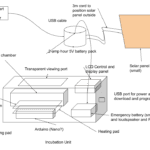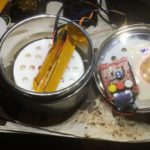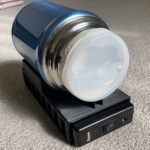Invention Coach:
Forrest "Lee" Erickson
Public Inventor(s):
Melanie Laporte, Harshit Kumar, Halimat Farayola, Enrique Ruiz, Horacio García, Silvia Karbid, Darío Hereñú, Kenton Robe, Sara J BarkerNancy Merirts
Previous PIs:
Robert Read
Motivation:
Water-borne disease is the leading cause of death globally. In 2019, it killed 3.4 million people – the majority being children. The first step in providing clean water is being able to verify that water is clean. There are many ways to assess water cleanliness. The standard way to do this is by culturing a sample on a nutrient with reagents with incubation at physiological temperatures for 48 hours that make colonies visible and counting the colonies. Though commonly used for food quality assessment, petrifilms [1] provide a visually compelling, quantifiable, and inexpensive method for demonstrating water contamination. Normally, analysis is done in a laboratory setting due in large part to the requirement for incubation, which currently can only be done in large, expensive laboratory-grade incubators. In developing countries laboratory facilities are either unavailable or require transport of samples, which can delay analysis for hours or even days beyond EPA [2] and WHO standards. To combat this problem an Engineers Without Borders (EWB) team developed a portable incubator capable of incubating petrifilms for 48 hours at 37C while in the field [3]. The Portable Programmable Incubator project is the next evolution of the original incubator and an offshoot of the Rapid E. Coli detection for Public Invention.
Story:
Note: This project builds on the work Moonrat I, an older project.
Overall Goals: Build the best, cheapest, most reliable, most portable incubator for detecting bacterial contamination on site, in the field, without having to send samples to a distant laboratory. While we are targeting the use of petrifilm incubation, this portable incubator technology can also be extended to applications beyond water quality assessment, enhancing the capacity for accessible laboratory efforts, regardless of facility and resource availability.
Minimum Requirements:
Battery/Solar powered device capable of maintaining contents at a specified temperature for at least 48 hours
Programmable temperature targets (between 30C to 42C)
Data logging capability to facilitate operator review
Reduced form factor for added portability as compared to the current generation [see ref 3 “Armadillo v1.0”]
[1] Petrifilms: https://www.3m.com/3M/en_US/company-us/all-3m-products/~/ECOLICT-3M-Petrifilm-E-coli-Coliform-Count-Plates/?N=5002385+3293785155&rt=rud
[2] EPA Guidelines: https://19january2017snapshot.epa.gov/sites/production/files/201511/documents/drinking_water_sample_collection.pdf
[3] Original Incubator Paper – http://jhe.ewb.org.au/index.php/jhe/article/view/127
Status:
Skills Needed
3D design, Arduino programming, electro-mechanical design, OpenSCAD programming
Quarterly Goals
- Complete the Experiment.com fundraising campaign
- Design, order and test PCB
- Design a 6-wire interface allowing different heating chambers
Collateral
https://youtu.be/yTW_BcTsaGw?si=5EZJ13wSmHkFkbbG



